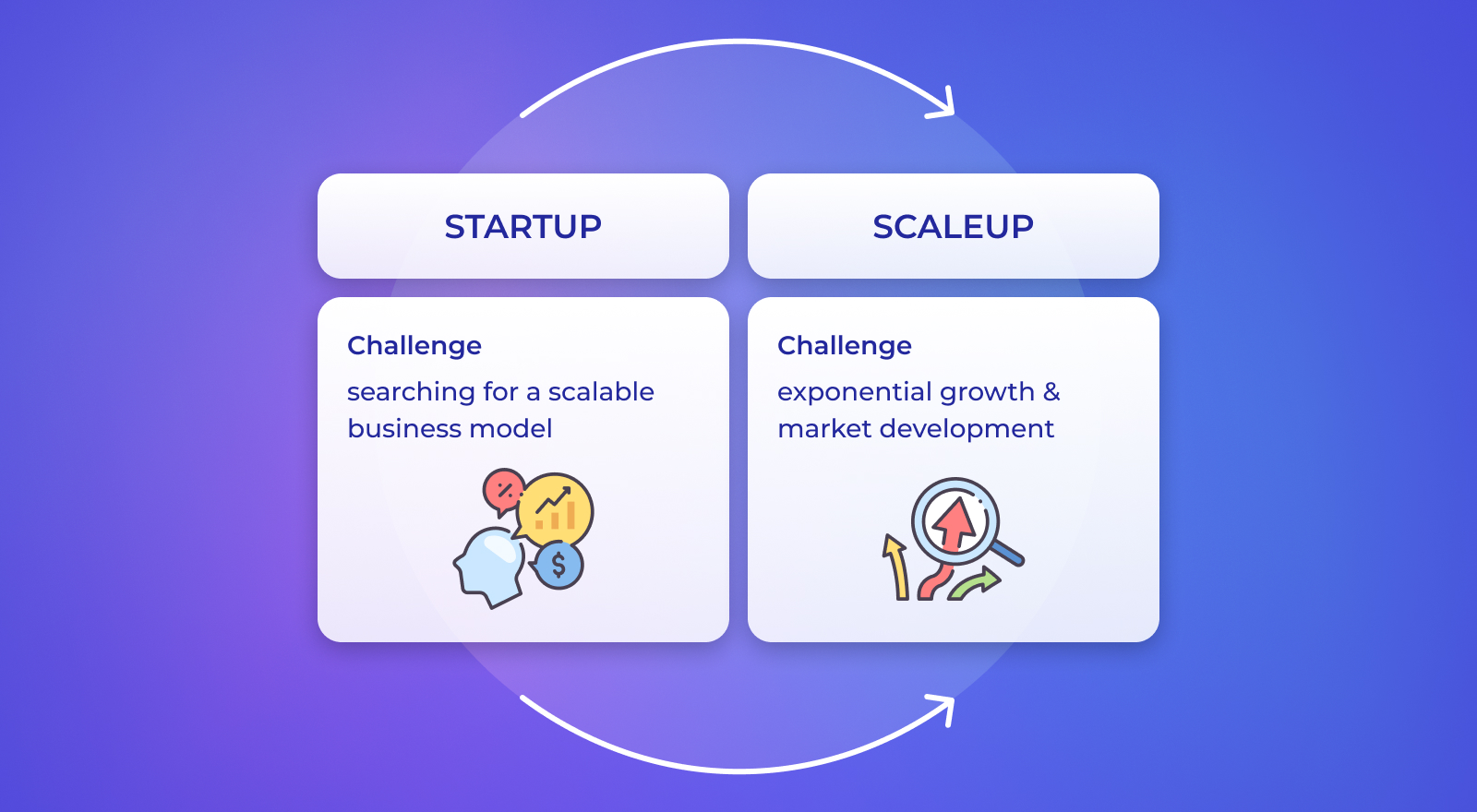The Challenges of Scaling a Startup Team: Common Pitfalls to Avoid
Scaling a startup team can be a daunting task, filled with challenges that can make or break a company’s success. As a startup grows, it’s essential to address the common pitfalls that can hinder progress and prevent sustainable growth. One of the most significant challenges is maintaining effective communication among team members. As the team expands, it’s easy for communication breakdowns to occur, leading to misunderstandings, errors, and decreased productivity.
Another challenge that startups face when scaling their teams is cultural shifts. As new employees join the company, the culture and values that defined the startup in its early days can become diluted. This can lead to a loss of identity and a sense of disconnection among team members. Furthermore, talent acquisition difficulties can also arise, as startups struggle to find candidates who share their vision and values.
To overcome these challenges, it’s crucial to address them proactively. This can involve implementing effective communication strategies, such as regular team meetings, open communication channels, and collaboration tools. Startups can also prioritize cultural preservation by establishing clear values and mission statements, and ensuring that all new hires align with these principles.
In addition, startups can benefit from developing a robust talent acquisition strategy, including a clear job description, effective interview techniques, and a thorough candidate evaluation process. By addressing these challenges
How to Hire the Right Talent for Your Startup: A Step-by-Step Guide
Hiring the right talent is crucial for scaling a startup team. The right employees can bring new ideas, skills, and perspectives to the table, while the wrong hires can hinder growth and create unnecessary challenges. To ensure that your startup attracts and retains top talent, it’s essential to develop a strategic hiring process.
Step 1: Define Your Ideal Candidate
Before starting the hiring process, it’s essential to define your ideal candidate. This involves identifying the key skills, qualifications, and characteristics required for the role. Consider the company’s vision, mission, and values, as well as the specific needs of the team. Create a detailed job description that outlines the responsibilities, expectations, and requirements of the position.
Step 2: Utilize Effective Interview Techniques
Once you’ve identified potential candidates, it’s time to conduct interviews. Effective interview techniques involve asking behavioral questions that assess the candidate’s past experiences, skills, and fit with the company culture. Use a standardized evaluation process to ensure fairness and consistency in the hiring process.
Step 3: Evaluate Candidates Based on Company Values
When evaluating candidates, it’s essential to consider how well they align with the company’s values and mission. Look for candidates who share your startup’s vision and are passionate about contributing to its growth. Assess their communication skills, teamwork abilities, and adaptability to ensure they can thrive in a fast-paced startup environment.
Step 4: Make Data-Driven Hiring Decisions
Use data and analytics to inform your hiring decisions. Track key metrics such as time-to-hire, source of hire, and candidate satisfaction to identify areas for improvement. Utilize tools like applicant tracking systems (ATS) and recruitment marketing platforms to streamline the hiring process and reduce costs.
By following these steps, startups can develop a strategic hiring process that attracts and retains top talent. Remember, hiring the right talent is critical for scaling a startup team and achieving long-term success.
Scaling a startup team requires a thoughtful and intentional approach to hiring. By prioritizing company values, utilizing effective interview techniques, and making data-driven decisions, startups can build a high-performing team that drives growth and innovation.
Effective Communication Strategies for Scaling Teams: Tools and Techniques
Effective communication is the backbone of any successful team, and it’s especially crucial when scaling a startup team. As the team grows, it’s easy for communication to break down, leading to misunderstandings, errors, and decreased productivity. To avoid these pitfalls, it’s essential to implement effective communication strategies that foster transparency, open communication, and collaboration.
One of the most effective ways to maintain transparency is through regular team meetings. This can include daily stand-ups, weekly team meetings, or monthly town halls. These meetings provide a platform for team members to share updates, discuss challenges, and align on goals. Additionally, consider using collaboration tools like Slack, Trello, or Asana to facilitate communication and project management.
Another key strategy is to foster open communication. This involves creating a culture where team members feel comfortable sharing their thoughts, ideas, and concerns. Encourage feedback, ask open-ended questions, and provide opportunities for team members to share their perspectives. This can be achieved through regular one-on-one meetings, anonymous feedback channels, or team-building activities.
Scaling teams also require effective communication tools. Consider using video conferencing tools like Zoom or Google Meet to facilitate remote communication. Additionally, use project management tools like Jira or Basecamp to track progress, assign tasks, and set deadlines. These tools can help streamline communication, reduce misunderstandings, and increase productivity.
Successful startups like Airbnb, Uber, and LinkedIn have implemented effective communication strategies to scale their teams. For example, Airbnb uses a platform called “Airbnb Wiki” to share knowledge, best practices, and company updates. Uber uses a tool called “Uber’s Culture Deck” to communicate the company’s values, mission, and vision. These strategies have helped these startups maintain transparency, foster open communication, and scale their teams effectively.
By implementing these effective communication strategies, startups can scale their teams with confidence. Remember, communication is key to success, and it’s essential to prioritize it when scaling a startup team.
Scaling a startup team requires intentional communication strategies that foster transparency, open communication, and collaboration. By using the right tools, techniques, and strategies, startups can maintain effective communication and achieve long-term success.
Scaling Your Startup’s Culture: Preserving Values and Vision
As a startup scales, it’s essential to preserve the company culture and values that defined it in its early days. A strong company culture is the foundation of a successful startup, and it’s crucial to maintain it as the team grows. However, scaling a startup team can be a challenging process, and it’s easy for the culture to become diluted.
To preserve the company culture, it’s essential to have leadership buy-in. Leaders must prioritize the culture and values of the startup, and ensure that they are communicated effectively to all team members. This can be achieved through regular town hall meetings, company-wide announcements, and one-on-one meetings with team members.
Employee engagement is also critical in preserving the company culture. Encourage team members to participate in company-wide initiatives, provide opportunities for feedback and suggestions, and recognize and reward employees who embody the company values. This will help to create a sense of ownership and accountability among team members, and ensure that the culture is preserved.
Cultural ambassadors can also play a crucial role in preserving the company culture. These are team members who embody the company values and are passionate about the startup’s mission. They can help to communicate the culture to new hires, provide feedback and suggestions, and ensure that the culture is preserved as the team grows.
Successful startups like Netflix and Airbnb have prioritized their company culture and values as they scaled. Netflix, for example, has a strong culture of innovation and experimentation, which is reflected in its company values. Airbnb, on the other hand, has a culture of community and belonging, which is reflected in its company mission. These startups have demonstrated that preserving the company culture is essential for long-term success.
By prioritizing the company culture and values, startups can ensure that they maintain their unique identity and sense of purpose as they scale. This will help to drive engagement, motivation, and productivity among team members, and ultimately contribute to the startup’s long-term success.
Scaling a startup team requires intentional effort to preserve the company culture and values. By having leadership buy-in, encouraging employee engagement, and utilizing cultural ambassadors, startups can maintain their unique identity and sense of purpose as they grow.
Managing Change and Uncertainty in a Scaling Startup Team
Scaling a startup team can be a challenging and uncertain process. As the team grows, it’s essential to manage change effectively to maintain morale, motivation, and productivity. However, change can be difficult for team members to adapt to, and it’s crucial to communicate the reasons behind the change and provide support during the transition.
One of the most effective ways to manage change is to communicate it clearly and transparently. This involves explaining the reasons behind the change, the expected outcomes, and the impact on team members. It’s also essential to provide regular updates and progress reports to keep team members informed and engaged.
Managing resistance to change is also critical in scaling a startup team. This involves addressing concerns and fears, providing support and training, and encouraging feedback and suggestions. By doing so, team members will feel more comfortable with the change and be more likely to adapt to it.
Maintaining morale is also essential during times of change and uncertainty. This involves recognizing and rewarding team members for their contributions, providing opportunities for growth and development, and fostering a positive and supportive team culture. By doing so, team members will feel more motivated and engaged, and be more likely to adapt to the change.
Adaptability and resilience are also critical in scaling a startup team. This involves being able to pivot quickly in response to changing market conditions, customer needs, and team dynamics. By being adaptable and resilient, team members will be better equipped to handle the challenges and uncertainties of scaling a startup team.
Successful startups like Amazon and Google have demonstrated the importance of managing change and uncertainty in scaling a startup team. These companies have shown that by communicating change clearly, managing resistance, maintaining morale, and being adaptable and resilient, it’s possible to scale a startup team effectively and achieve long-term success.
By following these strategies, startups can manage change and uncertainty effectively and maintain a high-performing team. Remember, scaling a startup team requires intentional effort and a willingness to adapt to changing circumstances.
Scaling a startup team is a complex and challenging process, but by managing change and uncertainty effectively, startups can achieve long-term success and growth.
Measuring Success in a Scaling Startup Team: Key Performance Indicators
Measuring success is crucial for any startup team, and it’s especially important when scaling a startup team. By tracking key performance indicators (KPIs), startups can evaluate their progress, identify areas for improvement, and make informed business decisions. In this article, we’ll discuss the importance of measuring success in a scaling startup team and provide strategies for tracking and analyzing KPIs.
Revenue growth is a critical KPI for any startup team. It measures the team’s ability to generate revenue and sustain growth over time. To track revenue growth, startups can use metrics such as monthly recurring revenue (MRR), annual recurring revenue (ARR), and customer lifetime value (CLV).
Customer acquisition is another important KPI for scaling startup teams. It measures the team’s ability to attract and retain customers. To track customer acquisition, startups can use metrics such as customer acquisition cost (CAC), customer retention rate, and customer satisfaction (CSAT).
Employee satisfaction is also a critical KPI for scaling startup teams. It measures the team’s ability to engage and motivate employees. To track employee satisfaction, startups can use metrics such as employee net promoter score (eNPS), employee retention rate, and employee engagement surveys.
To track and analyze KPIs, startups can use a variety of tools and techniques. These include data analytics platforms such as Google Analytics, Mixpanel, and Amplitude, as well as project management tools such as Asana, Trello, and Jira.
Successful startups like Facebook and LinkedIn have demonstrated the importance of measuring success in a scaling startup team. These companies have shown that by tracking KPIs and using data to inform business decisions, it’s possible to scale a startup team effectively and achieve long-term success.
By tracking KPIs and using data to inform business decisions, startups can ensure that they’re on the right path to success. Remember, measuring success is an ongoing process that requires continuous monitoring and evaluation.
Scaling a startup team requires intentional effort and a willingness to adapt to changing circumstances. By tracking KPIs and using data to inform business decisions, startups can ensure that they’re making progress towards their goals and achieving long-term success.
Lessons from Successful Startup Teams: Scaling Strategies that Work
Scaling a startup team can be a challenging and complex process, but there are many successful startup teams that have navigated this journey effectively. By learning from their experiences and strategies, startups can gain valuable insights and adapt their own scaling strategies to fit their unique needs.
One successful startup team that has scaled effectively is Airbnb. Airbnb’s scaling strategy involved focusing on building a strong company culture, prioritizing employee engagement, and using data to inform business decisions. By doing so, Airbnb was able to scale its team from a few dozen employees to over 4,000 employees in just a few years.
Another successful startup team that has scaled effectively is Uber. Uber’s scaling strategy involved prioritizing innovation, diversification, and strategic partnerships. By doing so, Uber was able to scale its team from a few hundred employees to over 20,000 employees in just a few years.
Dropbox is another successful startup team that has scaled effectively. Dropbox’s scaling strategy involved focusing on building a strong product, prioritizing customer satisfaction, and using data to inform business decisions. By doing so, Dropbox was able to scale its team from a few dozen employees to over 1,000 employees in just a few years.
These successful startup teams demonstrate that scaling a startup team requires intentional effort and a willingness to adapt to changing circumstances. By learning from their experiences and strategies, startups can gain valuable insights and adapt their own scaling strategies to fit their unique needs.
Scaling a startup team is a complex and challenging process, but by learning from successful startup teams, startups can gain valuable insights and adapt their own scaling strategies to fit their unique needs. Remember, scaling a startup team requires intentional effort and a willingness to adapt to changing circumstances.
By learning from successful startup teams, startups can gain valuable insights and adapt their own scaling strategies to fit their unique needs. This can help startups to scale their teams effectively and achieve long-term success.
Sustaining Momentum in a Scaling Startup Team: Long-Term Growth Strategies
Sustaining momentum is crucial for scaling a startup team. As the team grows, it’s essential to maintain focus on the company’s mission and vision while adapting to changing market conditions. In this article, we’ll discuss strategies for sustaining momentum in a scaling startup team, including long-term growth strategies such as innovation, diversification, and strategic partnerships.
Innovation is a key driver of growth for scaling startup teams. By continuously innovating and improving products and services, startups can stay ahead of the competition and maintain momentum. This can involve investing in research and development, encouraging a culture of experimentation, and providing resources for innovation.
Diversification is another strategy for sustaining momentum in a scaling startup team. By diversifying products and services, startups can reduce dependence on a single revenue stream and maintain momentum. This can involve expanding into new markets, developing new products, and exploring new business models.
Strategic partnerships are also essential for sustaining momentum in a scaling startup team. By partnering with other companies, startups can access new markets, technologies, and expertise. This can involve forming partnerships with suppliers, customers, and other stakeholders.
Successful startups like Amazon and Google have demonstrated the importance of sustaining momentum in a scaling startup team. These companies have shown that by innovating, diversifying, and forming strategic partnerships, it’s possible to maintain momentum and achieve long-term success.
By sustaining momentum, scaling startup teams can maintain focus on their mission and vision while adapting to changing market conditions. This can help startups to achieve long-term success and growth.
Sustaining momentum is crucial for scaling a startup team. By innovating, diversifying, and forming strategic partnerships, startups can maintain momentum and achieve long-term success.








